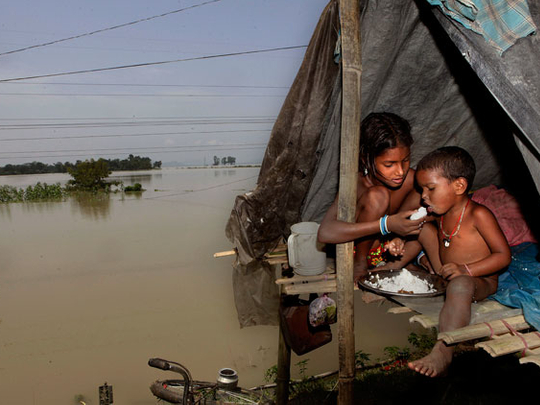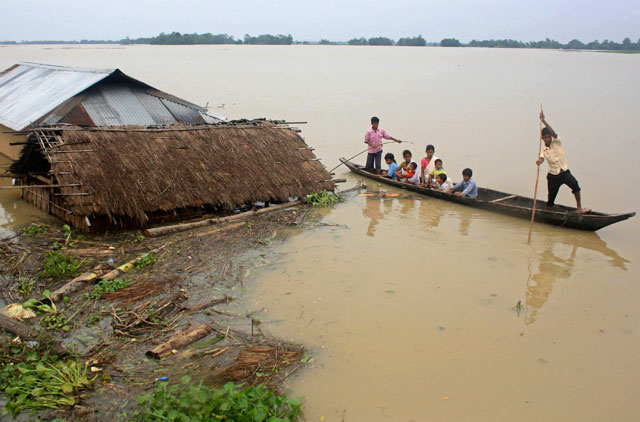
Gauhati Raging floodwaters fed by monsoon rains have inundated more than 2,000 villages in northeast India, killing at least 27 people and leaving hundreds of thousands more marooned Friday.
The Indian air force was delivering food packages to people huddled on patches of dry land along with cattle and wild elephants.
Rescuers were being dropped by helicopter into affected areas to help the stranded.
About one million people have been forced to evacuate as the floods from the swollen Brahmaputra River — one of Asia's largest — swamped 2,084 villages across most of Assam state, officials said.
Casualties expected to mount
Officials have counted 27 people dead so far, but the toll is expected to be much higher as unconfirmed casualty reports mount.
Telephone lines were knocked out and some train services were cancelled after their tracks were swamped by mud. As the floods soaked the Kaziranga game reserve east of Assam's capital of Gauhati, motorists reported seeing a one-horned rhino fleeing along a busy highway.
"We never thought the situation would turn this grim when the monsoon-fed rivers swelled a week ago," said Nilomoni Sen Deka, an Assam government minister.
Waters swallow 50 villages
Residents of Majuli — an 800-square-kilometre island in the middle of the Brahmaputra River — watched helplessly as the swirling, grey waters swallowed 50 villages and swept away their homes.
"We are left with only the clothes we are wearing," said 60-year-old Puniram Hazarika, one of about 75,000 island residents now camping in makeshift shelters of bamboo sticks and plastic tarps on top of a mud embankment.
A herd of 70 endangered Asiatic elephants, which usually avoid humans, were grouped together nearby, Majuli island wildlife official Atul Das said. "The jumbos have not caused any harm, but we are keeping a close watch," he said.













